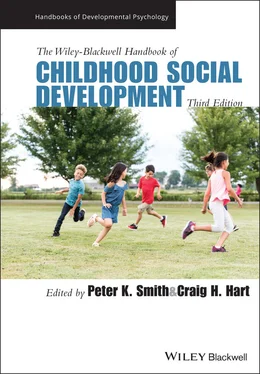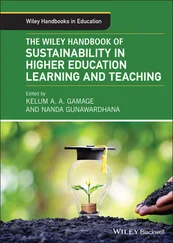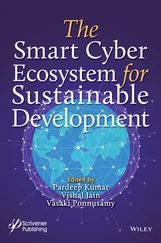This chapter hopefully demonstrates that understanding of childhood and child development is not fully and satisfyingly possible without studying the cultural historical context. Empirical analytical research is necessary, but not sufficient. Historical framing and reframing is the key to the contextual understanding of children. In short: what we need is a Historical Developmental Psychology (Koops & Kessel, 2017).
This chapter builds on a book of the author, published in the Dutch language (Koops, 2016).
1 Ariès, P. (1960). L’enfant et la vie familiale sous l’ancien régime. Libraire Plon.
2 Ariès, P. (1962). Centuries of childhood: A social history of family life. Vintage Books.
3 Baggerman, A., & Dekker, R. (2005). Kind van de toekomst. De wondere wereld van Otto van Eck (1780–1798). Wereldbibliotheek.
4 Baggerman, A., & Dekker, R. (2006). Verlichte pedagogiek rond 1800: ideaal, praktijk en doorwerking. De opvoeding van Otto van Eck (1780–1798). In N. Bakker, R. Dekker, & A. Janssens (Eds.), Tot burgerschap en deugd. Volksopvoeding in de negentiende eeuw (pp. 35–47). Verloren.
5 Bjorklund, D. F. (2007). Why youth is not wasted on the young: Immaturity in human development. Blackwell.
6 Bloom, A. (1979). Introduction. In Jean‐Jacques Rousseau, Émile, or on Education. Basic Books.
7 Brugmans, H. (1951). De révolte van het gemoed. Rousseau en het sentimentalisme. Van Loghum Slaterus.
8 Burgelin, P. (1952). La philosophie de l’existence de J.‐J. Rousseau. Plon.
9 Cassirer, E. (1932). Das Problem Jean‐Jacques Rousseau. Archiv für Geschichte der Philosophie.
10 Cassirer, E. (1955). The philosophy of the Enlightenment. Beacon Press.
11 Dasberg, L. (1975). Grootbrengen door kleinhouden als historisch verschijnsel. Boom.
12 De Swaan, A. (2004). Zorg en staat. Welzijn, onderwijs en gezondheidszorg in Europa en de Verenigde Staten in de nieuwe tijd. Bert Bakker.
13 Elias, N. (1939). Uber den Prozessder Zivilisation. Soziogenetische und psychogenetische Untersuchungen. Haus zum Falken.
14 Farson, R. (1974). Birthrights. Vintage.
15 Finkielkraut, A. (1987). La défaite de la pensée. Gallimard.
16 Finkielkraut, A. (1988). De ondergang van het denken. Contact.
17 Fukuyama, F. (1989). The end of history? The National Interest, Summer.
18 Fukuyama, F. (1992). The end of history and the last man. Free Press.
19 Gläser, J. (Ed.). (1920). Vom Kinde aus. G. Westermann.
20 Gopnik, A. (2009). The philosophical baby: What children’s minds tell us about truth, love, and the meaning of life. Picador.
21 Hanawalt, B. (1993). Growing up in Medieval London. Oxford University Press.
22 Herbart, J. F. (1841). Umriss Pädagogischer Vorlesungen (2nd ed.). Dieterich.
23 Hirschfeld, L. A. (2002) Why don’t anthropologists like children? American Anthropologist, 104, 611–627.
24 Holt, J. (1976). Escape from childhood. Vintage.
25 Illich, I. (1973). Deschooling society. Penguin.
26 Israel, J. I. (2001). Radical enlightenment: Philosophy and the making of modernity. Oxford University Press.
27 Israel, J. I. (2005). Radicale Verlichting. Hoe radicale Nederlandse denkers het gezicht van onze cultuur voorgoed veranderden. Uitgeverij Van Wijnen.
28 Kant, I. (Ed.) (1799). Beantwortung der Frage: Was ist Aufklärung. In Imanuel Kant’s vermischte Schriften. Johann Heinrich Tieftrunk.
29 Kessen, W. (1979). The American child and other cultural inventions. American Psychologist, 34, 815–820.
30 Kessen, W. (1993). A developmentalist’s reflections. In G. H. Elder Jr., J. Modell, & R. Parke (Eds.), Children in time and place: Developmental and historical insights (pp. 226–230). Cambridge University Press.
31 Koops, W. (1990). A viable developmental psychology in the nineties by way of renewed respect for tradition. In P. J. P.Drenth, J. A. Sergeant, & R. J. Takens, (Eds.), European perspectives in psychology, (Vol. 1, pp. 171–194). Wiley.
32 Koops, W. (1996). Historical developmental psychology: The sample case of paintings. International Journal of Behavioral Development, 19(2), 393–413.
33 Koops, W. (1998). Infantilisatie bij kinderen, jeugdigen en volwassenen. In N. Verloop, (Ed.), 75 jaar onderwijs en opvoeding, 75 Pedagogische Studiën, (pp. 131–161). Wolters‐Noordhoff.
34 Koops, W. (2004). Imaging childhood in European history and developmental psychology. European Journal of Developmental Psychology, 1(1), 1–18.
35 Koops, W. (2008). Historical reframing of childhood. University of Utrecht Press.
36 Koops, W. (2016). Een Beeld van een Kind. Boom.
37 Koops, W., & Kessel, F. (Eds.) (2015). Common historical roots. Introduction to the special section on recapitulation theory and development psychology. European Journal of Developmental Psychology, 12(6), 627–629.
38 Koops, W., & Kessel, F. (2017). Developmental psychology without positivistic pretentions: An introduction to the special issue on historical developmental psychology. European Journal of Developmental Psychology, 14(6), 629–646.
39 Koops, W., & Zuckerman, M. (2003). A historical developmental approach to adolescence (special issue). History of the Family, 8(3), 345–421.
40 Kuijer, G. (1980). Het Geminachte Kind. Tulp.
41 L’Aminot, T. (1992). Images de Jean‐Jacques Rousseau. The Voltaire Foundation.
42 LeVine, R. A., & New, R. S. (2008). Anthropology and child development. A cross‐cultural reader. Blackwell.
43 Lévy‐Bruhl, L. (1910). Les Functions Mentales dans les Sociétés Inférieures. Retz.
44 Lévy‐Bruhl, L. (1922). La Mentalité Primitive. Presses universitaires de France.
45 Levi‐Strauss, C. (1951/1987). Race et Histoire. Denoël.
46 Lorenz, K. (1971). Studies in animal and human behaviour (Vol. 2). Methuen.
47 Mintz, S. (2017). Why history matters: Placing infant and child development in historical perspective. European Journal of Developmental Psychology, 14(6), 647–658
48 Morss, J. R. (1990). The biologising of the child. Lawrence Erlbaum.
49 Mijnhardt, W. W., & Wichers, A. J. (1984). Om het algemeen volksgeluk. Twee eeuwen particulier initiatief 1784‐1984. Maatschappij tot Nut van ’t Algemeen.
50 Noordam, N. F. (1975). Pestalozzi. In I. Van der Velde (Ed.), Grote denkers over opvoeding (pp. 225–251). Meulenhoff Educatief.
51 Onishi, K. H., & Baillargeon, R. (2005). Do 15‐month‐old infants understand false beliefs? Science, 308(5719), 255–258.
52 Plessner, H. (1946). Over de infantiliserende invloed van de moderne maatschappij op op de jeugd. Pedagogisce Studiën, 23, 193–202.
53 Postman, N. (1992). The disappearance of childhood. Dell Publishing Co. (first published in 1982).
54 Preyer, W. Th. (1882/1989). Die Seele des Kindes. (Eingeleitet und mit Materialien zur Rezeptionsgeschichte versehen von Georg Eckardt). Springer Verlag (first published in 1882).
55 Prins, F. W. (1963). Verleden en heden. Beknopte geschiedenis van opvoeding en onderwijs. Wolters.
56 Rang, M. (1959). Rousseaus Lehre vom Menschen. Vandenhoek & Ruprecht.
57 Reble, A. (1977). Filantropisme. In A. de Block, T. T. Ten Have, C. C. Keyser, & E. Velema (Eds.), Standaard Encyclopedie voor opvoeding en onderwijs (pp. 62–63). Standaard Uitgeverij.
58 Roland Holst, H. (1918). Jean Jacques Rousseau. Een beeld van zijn leven en werken. Wereld Bibliotheek.
59 Rosenblum, R. (1988). The Romantic child. Thames and Hudson.
60 Rousseau, J.‐J. (1755). Discours sur l’origine et les fondements de l’inégalité parmi les hommes. Rey.
61 Rousseau, J.‐J. (1762). Du contrat social: ou principes du droit politique. Rey.
62 Rousseau, J.‐J. (1762/1763). Émile, or on Education. Nourse and Vaillant (originally published as Émile ou de l’Éducation, 1762).
Читать дальше












